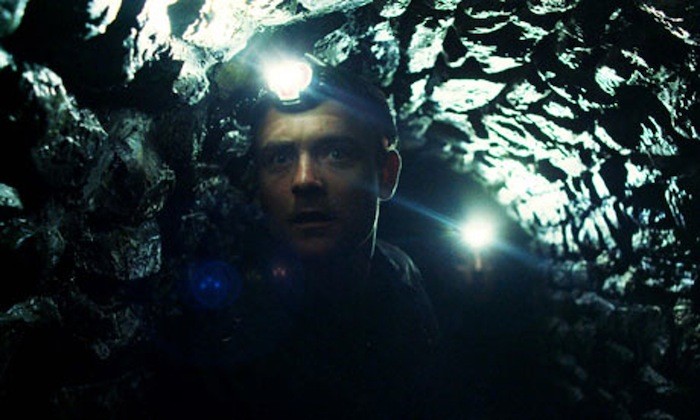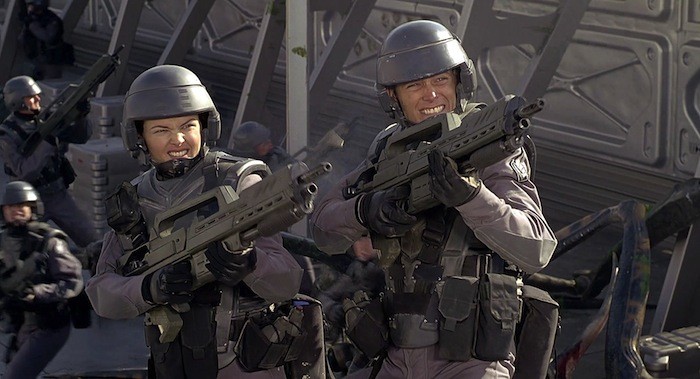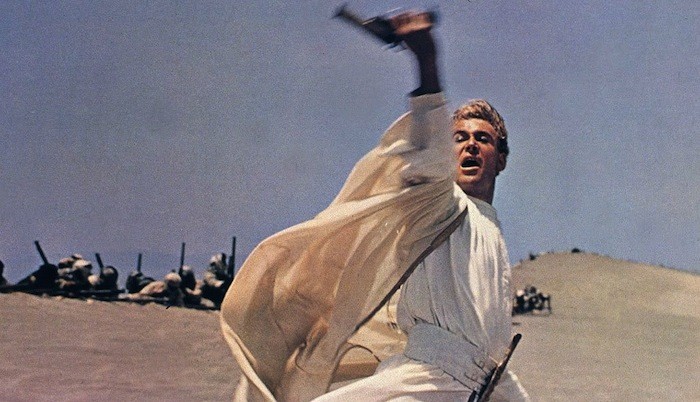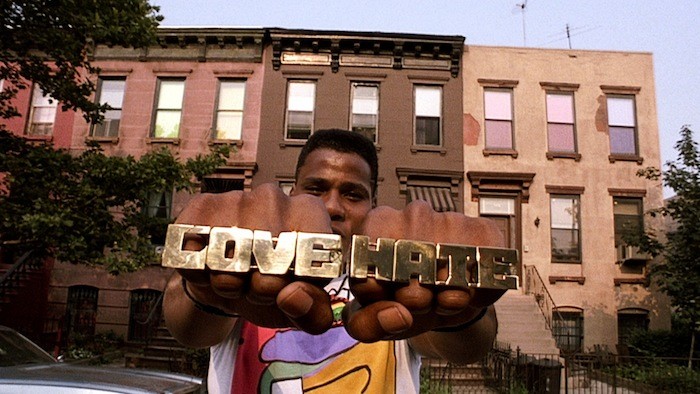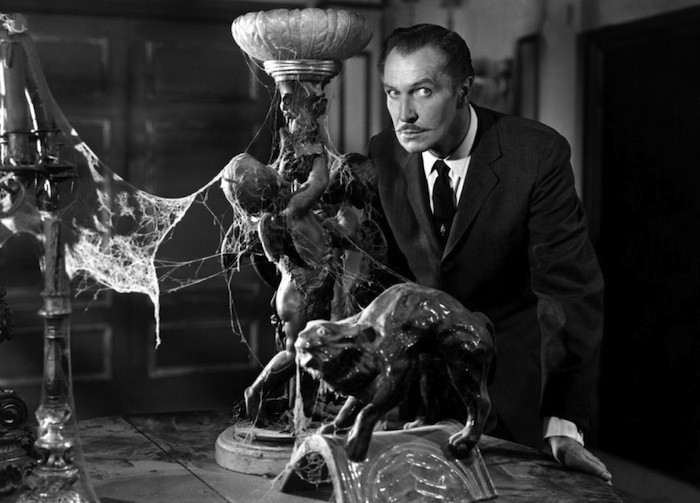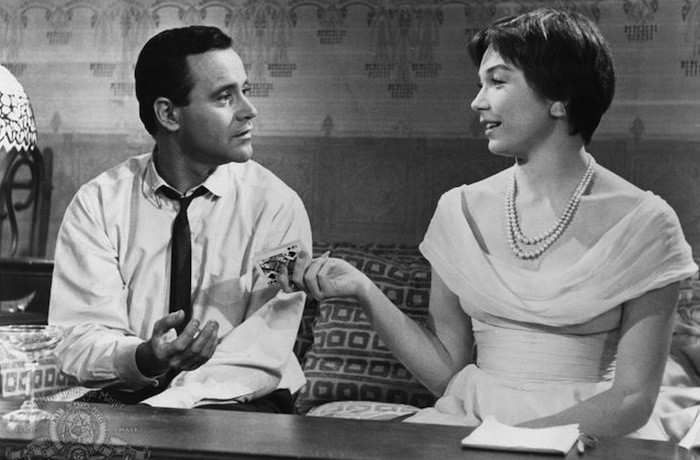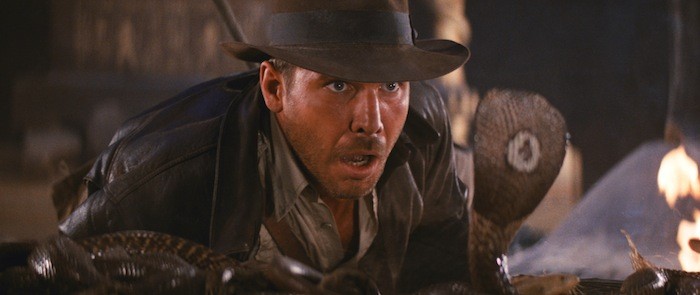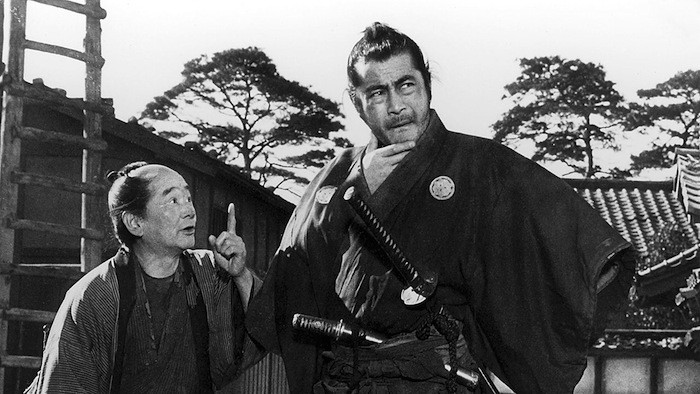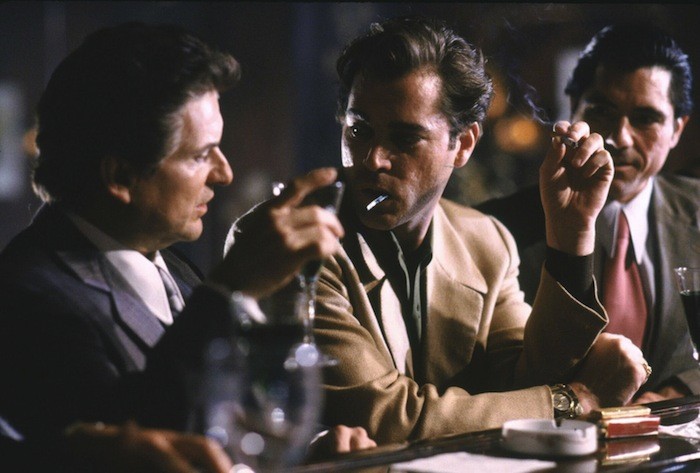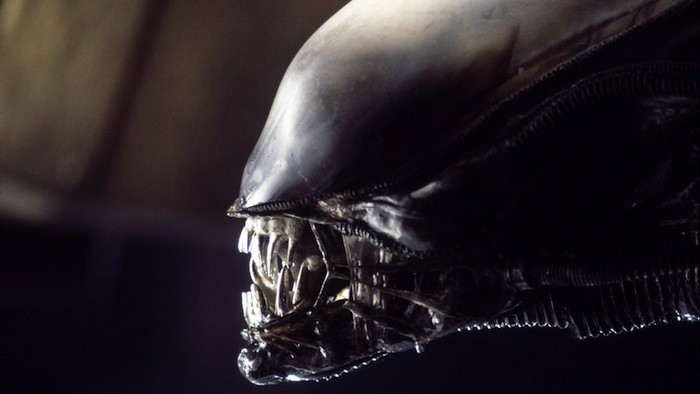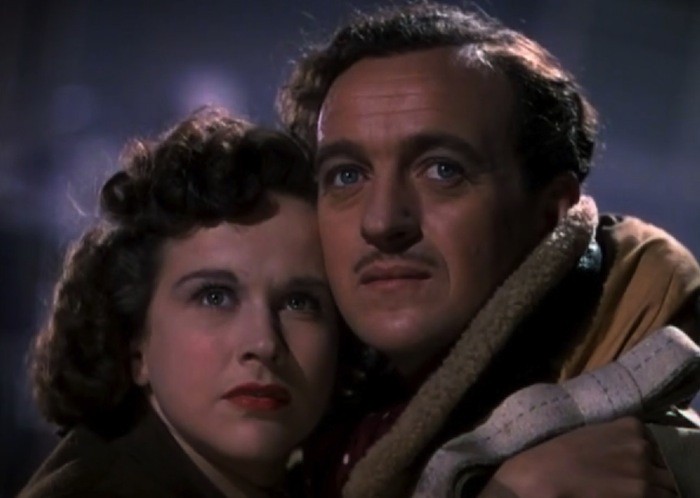Jacob Hall's Favorite Movies Of All Time
Hi, /Film. My name is Jacob Hall and my favorite movies are part of me on a molecular level. Cut me open and the films that have defined my life come spilling out in a great, red heap. So when I was asked to introduce myself to you guys, the community, via a list of my favorite movies of all time, I prepared myself for some gritty, Robert-De-Niro-in-Ronin-style surgery. This list is me being cut open for your amusement.
Read on all about my favorite movies after the jump.
Jacob Hall's Favorite Movies of All Time
If I had a nickel for every time my list of favorite movies of all time changed, I'd have about $1.80. But right now, as of October 7, 2015, these movies best represent everything I love about cinema and inform my tastes in every way. I'm ashamed that there's no Alfred Hitchcock, Stanley Kubrick, or Coen brothers. I regret to inform some of you that there's no Christopher Nolan or David Fincher. I love all of them. Great movies had to be axed to make room for great movies that are a little closer to my heart. This was tough. However, I can promise you that this list is 100% honest. I stand by every entry. Yes, even the crazy ones.
Oh, and the film that's missing from the list that you'll remind me about in the comments? That was number 16. I swear.
15. Kill List
Ben Wheatley is the most exciting filmmaker to emerge since the year 2000 and Kill List is his best movie. A macabre masterpiece of tension and terror, this is one of the most nerve-rattling movies ever made. And Wheatley makes it look easy, luring us in with a shaggy hitman drama before easing us into horror territory before plunging us into the pure, nightmarish hell that is the third act. Repeat viewings can't diminish the black, evil landscape of Kill List, which remains as mysterious and uneasy and sickening on a fifth viewing as it does on a first. It's a good thing all horror movies aren't this good – we'd all die of a heart attack sooner rather than later.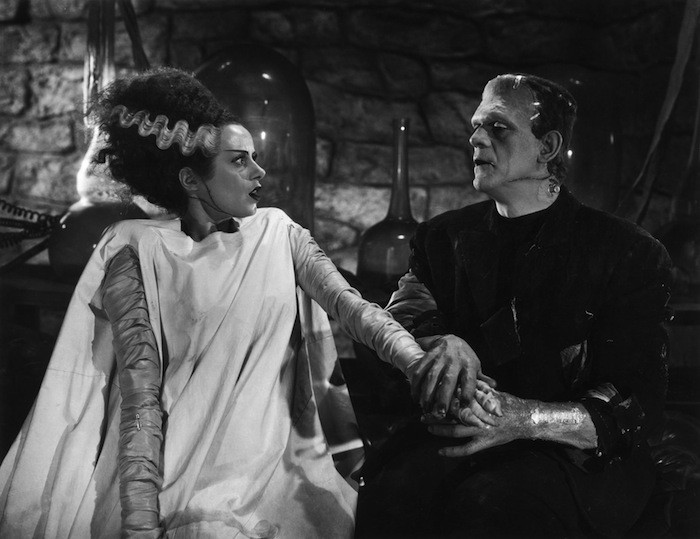
14. Bride of Frankenstein
Consider this slot a placeholder for every classic Universal monster movie. From Frankenstein and Dracula, The Invisible Man and The Mummy, The Wolf Man and The Creature From the Black Lagoon, these black and white horror classics have maintained their mystique, charms and elegance 80-plus years after their debut. If push has to come to shove, Bride of Frankenstein is the best of the lot, showcasing the range of these films and their total fearlessness. Here is a sequel that is totally unlike is predecessor. It's morbidly funny and unexpectedly fantastical. It mines wry comedy from its monstrous characters before plunging them in the depths of utmost despair. Most importantly, like the best of Universal's horror classics, it maintains sympathy for its various devils. The Universal monsters are more sympathetic and tragic than those that hunt and fear them. They are painfully, remarkably, frighteningly human. The scares may be outdated, but the monsters themselves still cut straight to the bone.
13. Starship Troopers
Starship Troopers is such a straight-faced satire that many viewers will watch it convinced that it's just a silly action movie. But director Paul Verhoeven is smarter than that, taking the ideas he incubated in RoboCop and unleashing them, fully formed and ready to bite. On the surface, Starship Troopers is a fun, campy B-movie filled with astonishing special effects and violence so brutal that it can't help but be funny. And it functions perfectly fine in this mold. But it's a better, more twisted film at its core. Intentionally case almost entirely with wooden, blandly good-looking actors and set in a future world where "Democracy has failed," this film is essentially a recruitment video for a non-existant dystopian government that wants you to journey into outer space and die fighting nasty alien bugs for, uh, reasons.
Verhoeven has expressed a disdain (and morbid fascination) for totalitarianism in his other films. Here, he makes serving your goose-stepping masters look like a tremendous adventure filled with action and excitement. Fascism, like blockbuster movies, sure can look cool in the right context. That's vicious satire. This may be one of the ballsiest movies ever made...and it's certainly the only film to ever dress Neil Patrick Harris like a Gestapo officer.
12. Lawrence of Arabia
They literally don't make movies like this anymore. Lawrence of Arabia is huge in a way that modern movies simply cannot match and the logistics the whole thing are jaw-dropping. If you haven't seen David Lean's masterpiece on the big screen, you haven't truly seen it at all. This is a movie of unimaginable scope, the rare movie that transcends being a movie and becomes an experience.
This is a masterpiece of technical filmmaking all by itself, but it achieves "greatest of all time" status because its story and characters actually back up the bombast. Here is a fascinating (and more nuanced than most modern films) look at conflict in the Middle East that treats its Arabic characters with respect (even if some of them are, unfortunately, played by white guys with tans).
Here is Peter O'Toole giving an unforgettable performance as a man who escapes the drudgery of his life by learning that he's good at one thing and one thing only – waging war. You could write an entire essay about how Lawrence of Arabia manages to be a powerful LGBT film without ever directly addressing T.E. Lawrence's alleged homosexuality. This is four hours of grand adventure, but its greatest treasures are locked away in subtext, demanding repeat journeys. Sure, they don't make movies like this anymore, but heck, they didn't make movies like this before, either.
11. Do the Right Thing
The more things change, the more they remain the same. Do the Right Thing is as relevant in 2015 as it was in 1989 and it remains as moving, funny, and challenging as ever. This is a movie that wears its honesty on its sleeve – yes, it's about race and no, it's not going to cut corners or make the conversation easy. Spike Lee has crafted a tremendous career out of saying the things that everyone is afraid to say and Do the Right Thing is his clearest and, somehow, most entertaining statement. Lee never asks you to agree with the decisions of his characters, whether they be black, white, or asian. He only asks for your empathy. He wants you to try to understand. Bad things happen to good people.
Mild offenses are met with tragic force. Hate simmers in those who have seemingly locked away hateful thoughts. Too many people die. We steadfastly fail to connect. It's too damn hot outside. Do the Right Thing is a wounded and pointed cry of pain and rage. It strikes you right in the soul. And you're having so much fun with it that you don't see the punch coming.
10. House on Haunted Hill
There are scarier horror movies than House on Haunted Hill. There are better crafted horror movies. There are horror movies with more surprising twists and turns. But there is only one House on Haunted Hill. Well, technically there are two, but the remake does not exist in this dojo. One of many low-budget horror movies made by schlock-master William Castle, this film smells like pumpkin and feels like a cool, autumn breeze. It's like someone bottled Halloween and developed film stock in it. Deliciously campy and totally self-aware, the film barrels from one spooky scene to the next, tongue always in cheek and always winking. More shocking than any ghost or ghoul is the pitch-black script, which allows its characters to exchange trade venomous barbs and drop acid-tongued retorts like they're in a screwball comedy.
Vincent Price in particular digs into his stylized dialogue, delivering a performance that showcases why he's a national treasure and one of the great gifts to the horror genre. As the film flies toward its bizarre, totally unexplainable, fourth wall-obliterating climax, Castle maintains a control of tone that is unseen in most movies, let alone a cheapo piece of supposed schlock. This is the funniest and slyest B-movie ever made and proof that sometimes the most creative filmmakers are the weirdos working on the fringes.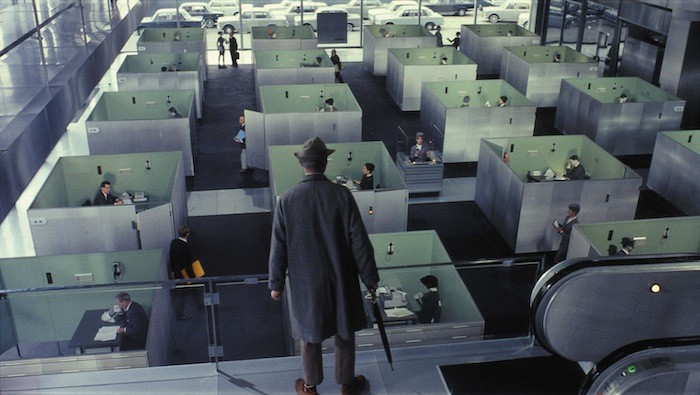
9. Playtime
With almost no dialogue of importance and few named characters, Playtime may sound like a tough pill to swallow. However, Jacques Tati's masterpiece doesn't need a plot because it has literally everything else. Tati, playing his Monsieur Hulot character crafted in three previous films, is our tour guide through a thoroughly "modern" Paris, where all of life's conveniences have actually made living all the more maddening. The film is a series of comic set pieces, each one more complex than the last and each of them taking place on gigantic, complex sets that have to be seen to be believed.
The film follows a simple, but enchanting pattern – no matter where we go, things go hilariously wrong for everyone. Tati's humor is observational and subtle, with sight gags hidden deep in the frame and jokes paying off long after they have been carefully set up. He makes you work for your laughs. He wants your patience. Thankfully, the weird world of Playtime is one that you don't mind luxuriating in. Fix yourself on the film's wavelength and let it wash over you. This is a visual journey, a charming non-adventure that acknowledges the frustrations of everyday life with humor and truth. When everything goes truly anarchic in the film's final stretch, you can feel the celebration. You want to join the party. Sometimes, we need things to go wrong if we want to truly live.
8. The Apartment
Billy Wilder's The Apartment is the funniest sad movie ever made. Or maybe it's the saddest funny movie. In any case, it's a masterpiece that disarms you with laughter so it can wrap itself around your soul and squeeze until it draws blood. The screenplay, from Wilder and I.A.L. Diamond, is perfect. Jack Lemmon and Shirley MacLaine are perfect. Wilder's understated direction is perfect.
The Apartment is an ode to loneliness, but a testament to love, however foolish it may be. It's one of the most painfully human movies ever made, a reflection of our desires and ambitions and failures. It's a deeply melancholy, but it cuts through the pain and finds love and beauty where you least expect it. It's hopeful and cynical in equal measure. It's a 125-minute long contradiction, but isn't that life? Well, it's a life that just so happens to feature two of the finest actors of all time exchanging dialogue from one of the sharpest scripts ever written while being directed by one of the best directors to ever grace Hollywood.
7. Raiders of the Lost Ark
Raiders of the Lost Ark is the best adventure movie ever made from the greatest and most versatile American filmmaker of all time. And Steven Spielberg makes it look easy. It would be easy to hate him if it wasn't impossible to not love him. By reaching into the pulps and the serials of the '30s, Spielberg, producer George Lucas, and Harrison Ford discovered lightning, bottled it, and then failed to recapture it over the course of three sequels. But that's okay. The first adventure of Indiana Jones is the perfect blend of thrills and chills and laughs and action. It's the gold standard against which all mainstream action movies are measured against. It's pure, undiluted, unpretentious, surefooted entertainment from some of the most talented people to ever grace Hollywood, operating at the height of their powers. There has never been a better time at the movies than this.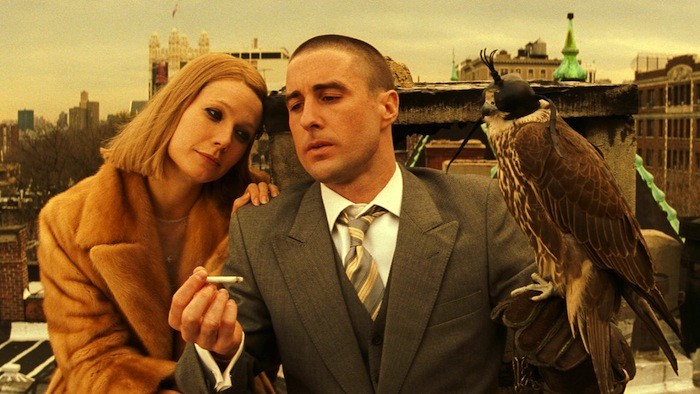
6. The Royal Tenenbaums
Wes Anderson found his voice with Rushmore, but he perfected it with The Royal Tenenbaums. Here he is, fully formed, his unique "dollhouse aesthetic" full formed, his dry comedy on display, and his brutal need to temper all comedy with tragedy readily apparent. In Gene Hackman's Royal Tenenbaum, Anderson created his greatest anti-hero and in the supporting cast, he created one of modern cinema's great dysfunctional families.
"Quirky" movies about estranged brothers and sisters and parents reuniting are a dime a dozen, but Anderson's characters are so strong, their relationships so strange and their world so fully realized that The Royal Tenenbaums doesn't just stand out from the pack. It redefines the pack. It raises the bar for the pack. Anderson is a modern master who populates his off-kilter, storybook worlds with characters so real that it's impossible to not feel their pain. As good as his later work is, it's so easy to laugh and cry and offer grudging-but respectable-support with the Tenenbaums.
5. Yojimbo
Yojimbo lacks the grandiosity of Seven Samurai, the emotional catharsis of Ikiru, and the ambition of Rashomon. It is not Akira Kurosawa's most complex film...but it's certainly his most entertaining. Sometimes, the greatest cinematic joys occur when a true master decides to cut loose and have a good time. Although it looks like a samurai movie, Yojimbo has more in common with the American noirs and westerns that inspired so much of Kurosawa's work. It's a tightly plotted and twisted tale, following a nameless ronin who wanders into town, stumbles into an ongoing war between two criminal factions, and decides to play both sides against one another. Why would he do this? Well, why not? It's not like he's got anything better to do.
Intrigue and deception and violence ensues, with Kurosawa getting plenty of chances to showcase his ability to direct clean, fast, brutal action. However, the filmmaking would be for naught if not for Toshiro Mifune's lead performance. Cool and collected and of very few words, he commands the frame. No human being has ever looked so cool and composed on camera and every stoic action hero owes a debt to this film whether they know it or not.
4. Goodfellas
Martin Scorsese makes cinematic rock 'n roll. His work is loose, dangerous and alluring. He makes worlds that you want to enter, even though those worlds will probably leave you unconscious and bleeding out in the gutter. Goodfellas is best movie and his most intoxicating, inviting you into a world of luxury and privilege...and then sitting back as the walls close in. We know why Ray Liotta's Henry Hill wants to be a gangster. We understand his world and his place in it. We like it. We like him. We want him to win.
In the moment, in the mad rush of Scorsese's filmmaking, we forget that this is a film about monsters. It's only when the characters hit rock bottom that we realize what we've been through and what we've encouraged. Goodfellas is paced like a rocket, is chock-full of quotable lines, and features shots and edits that brand themselves upon the brain. It's not a movie – it's a full contact sport. You emerge after the closing shot bruised and battered and ready for another round.
3. Alien
The brilliance of Ridley Scott's Alien is how it establishes a complex and rich science fiction world and then proceeds to tear it apart piece by piece. Mankind has conquered space, but he cannot conquer countless eons of primal instinct. Our technology cannot save us. Even when we're countless lightyears from home, things still go bump in the night. Things still lurk in the shadows and mean us harm. In other words, Alien is the most frightening movie ever made. As a horror movie, it's a brilliant exercise in tension, withholding its title monster for great stretches and letting our imaginations work themselves into a frenzy.
Scott deliberately makes his monster a mystery, only offering glimpses of a seemingly impossible creature whose life cycle we can barely comprehend. Here is an alien that is actually, truly alien. Our blue collar heroes, the sci-fi equivalent of long haul truckers certainly don't know how to kill it. They're not trained for this and they're alone on a clunky spaceship that looks like a gothic nightmare. In this universe, space travel sucks before the creature with acid blood shows up and starts tearing people apart. Some of Alien's sequels are good, but the first film, so simple, so elegant, so gorgeously designed, and executed with such icy precision, stands alone.
2. A Matter of Life and Death
Directors Michael Powell and Emeric Pressburger spent the '40s an '50s shooting some of the best and most beautiful movies ever made and A Matter of Life and Death is their masterpiece. The film is a dizzying mix of fantasy, romance and comedy, dividing its running time between our world (shot in lush technicolor) and the afterlife (shot in sterile black and white).
It's a supernatural courtroom drama, a stirring call for international cooperation between nations, a wicked satire of overblown patriotism, a noble tribute to soldiers, a testament to both reason and faith, a ridiculously silly comedy of manners, and a special effects epic whose visuals are still stunning today. Somehow, Powell and Pressburger make it all look effortless. As a British pilot who cheats death and finds himself forced to defend his existence to a heavenly court of law, David Niven is charming and eminently watchable. As the American servicewoman who falls in love with him, Kim Hunter is radiant. Together, they make one of the great movie romances, giving a movie jam-packed with imagination and flawless technique a perfect emotional core.
A Matter of Life and Death is a great romantic comedy, possibly even the best ever made, but it's also a stunning work of genre fiction and a reminder that when it comes to fantasy, the boundaries are literally limitless.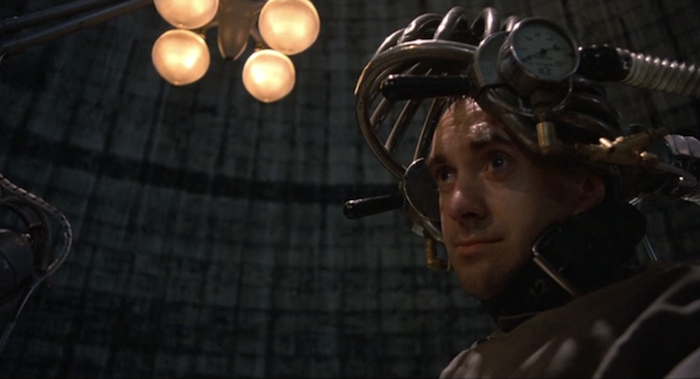
1. Brazil
Screaming at the world is not enough. Sometimes, you need just need to laugh at it all. Terry Gilliam's Brazil cloaks its howls of rage in satire, which is itself cloaked in broad comedy, which is cloaked in science fiction dystopia. It imagines an insane future world that is enough like our own to create discomfort. Citizens go on about their day as terrorist attacks literally rage around them. A bureaucratic error leads to the arrest and execution of an innocent man. A vigilante mechanic prowls the streets, repairing air conditioners that officially licensed inspectors can't or won't fix. A jovial family man spends his evenings with his family and his days torturing prisoners because hey, a living is a living, right?
At the center of it all if Jonathan Pryce's Sam Lowry, a lowly office drone who is a mighty warrior in his dreams. Lowry's quest through his terrifying and ugly world is hilarious and tragic, ultimate arriving at the greatest bittersweet film ending of all time. Gilliam's background as a member of Monty Python serves him well here, as he populates the film with sight gags and slapstick and silly jokes. However, his dark side ultimate rules Brazil. Behind every punchline is a broken heart and behind every humorous aside is a shattered dream. And corpses. Lots of those, too.
When faced with darkness, our best defense is laughter. Comedy is the only way to fight back. If we give in, our dreams die and what good is life without dreams? Brazil is a madhouse of a movie. It's deranged. But it may also be the sanest movie ever made.

